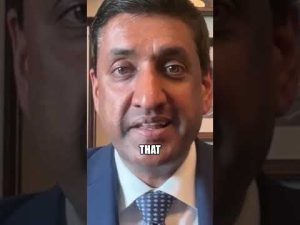The recent remarks by Brendan Carr, the new chair of the Federal Communications Commission (FCC), signal a crucial shift in the relationship between government and big tech. Carr, drawing a contrast between treatment based on last names, highlighted the concerning trend of bias in federal oversight. For too long, individuals like Elon Musk, who advocate for innovation and free speech, have faced undue scrutiny while others have enjoyed favorable treatment. This double standard is not just an issue of fairness; it threatens the integrity of our economic system.
By calling for an end to what he described as “lawfare” against Musk, Carr underscores a fundamental point: every business should compete under the same rules. The stark difference in how the government treats its favorite players versus those who challenge the status quo is alarming. For instance, while influential figures like George Soros can navigate the regulatory landscape with ease, Musk has seen his ventures hampered and contracts jeopardized. This imbalance is not merely a personal affront to Musk but a red flag for all businesses striving to innovate.
Moreover, Musk’s role as a champion of free speech places him squarely at odds with a media complex that many view as a puppet for certain powerful interests. By acquiring X, Musk has taken significant steps to disrupt the prevailing narratives that have dominated public discourse. This disruption is essential, especially in a democratic society where varied viewpoints are crucial. If we continue to allow a singular narrative to reign supreme, we risk fostering an environment where bad economic policies thrive under the guise of misinformation.
The necessity of ensuring that every individual receives a “fair shake” cannot be overstated. As Carr suggested, this principle should be the bedrock of our regulatory framework. When the government plays favorites, it stifles competition and innovation, ultimately harming consumers. This favoritism doesn’t just create an uneven playing field; it encourages a culture of dependency, where businesses rely on government favors rather than their own merits to succeed.
In conclusion, Carr’s appeal for an equitable approach to regulation is a welcome development in the ongoing dialogue about the role of government in business. It serves as a reminder that our economic system thrives best when all players are treated equally. As Carr’s leadership takes shape, it is essential for the FCC to uphold the principles of fairness and competition. If these ideals prevail, the future of innovation in America may indeed look brighter, and we can all thank our lucky stars for a little less lawfare and a lot more liberty.







